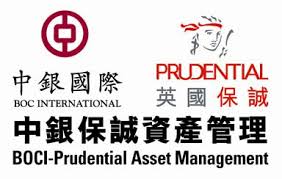Key takeaways:
While $3bn has gushed out of Hong Kong's ETF market, China new economy ETFs remain popular
New ETF listings have focused on China new economy as it has grown 16% a year since 2007
With A Shares forming part of MSCI's indices, Hong Kong (H Shares) ETFs no longer hold the appeal they used to
Hong Kong's ETF market has hit a major bear run and seen US$3 billion in outflows this year. But China "new economy" ETFs remain popular with investors thanks to the vibrancy and growth of the country's technology industries.
Almost all the nine ETFs launched in Hong Kong thus far this year are China focused and many of which are tied with Mainland internet and e-commerce sectors including Samsung CSI Dragon Internet ETF (02812) and CICC KranShares CSI China Internet Index ETF (3186).
BOCI-Prudential Asset Management, a joint venture between BOCI Asset Management and Prudential Corporation Holdings, has recently jumped on the bandwagon by launching the company's first sector ETF tracking China's new economy including the consumer goods, healthcare, consumer services and technology sectors.
The WISE Nasdaq Overseas China New Economy Companies Top 50 Index Tracker ETF (3182) was listed on the Hong Kong stock exchange on September 12.
The new fund is BOCI-Prudential's fourth ETF. The company has delved into ETF business in the city for about 10 years with the launches of three plain vanilla Hong Kong and China equities products.
Samuel Mui, vice president of BOCI-Prudential's quantitative strategy business unit, explains that the company decides to switch to thematic product because China has been moving up the value-chain and shifting its economy to "one that use technology to create new products and services".
"The new economy sectors in China grew at an average rate of 16.1% per annum between 2007 and 2016, almost doubling the country's overall gross domestic product growth," he says.
According to Mr Mui, the ETF can help investors gain access to these growth drivers of China's new economy.
Looking forward, he notes that the company will be selective to map out its product strategy to focus on developing the products with "uniqueness" and "the capabilities to track megatrends in China and Hong Kong".
Although there was a net outflow from Hong Kong's ETF market between January and August driven by foreign selling as trade tensions between China and the US sparked a stock market decline, thematic ETFs, including those tracking China's new economy, still look appealing to investors and that several such products have registered net inflows.
Nasdaq created the new ETF's underlying index earlier this year because of an increasing number of well-established Chinese companies seeking listing in Hong Kong and abroad in recent years, according to Chris Tse, head of Asia Pacific of Nasdaq Indexes Global Information Services.
The outflow was mainly from the broad-based A-share ETFs. Also, despite the inclusion of A-share into MSCI Emerging Market Indexes in June 1 and September 3, the aggregated flows into related ETFs prompted by the impetus were only about US$5.58 billion, according to Mr Tse.
The sum is relatively small compared to the total US$100 billion Qualified Foreign Institutional Investor (QFII) and the aggregated US$92 billion RMB Qualified Foreign Institutional Investor (RQFII) quotas granted by the State Administration of Foreign Exchange to foreign investors.
In other words, international investors now have more channels, such as Stock Connect, to develop their A-share portfolios rather than heavily relying on a handful of broad-based China ETFs, Mr Tse says.
Stock Connect is a cross-border programme that allows investors in Hong Kong and China to trade in each other's market.
Overall, Mr Tse believes investors are still keen on A-shares.
To meet the market demand, Nasdaq is diversifying its China index family. Some products in the pipeline include an index specifically tracking A-shares, and a benchmark that tracks both A-shares and stocks of Chinese companies that trade via Stock Connect, Mr Tse says.
"We will license these indexes to ETF providers to create various China ETF products in order to meet different demand from investors," he adds.



